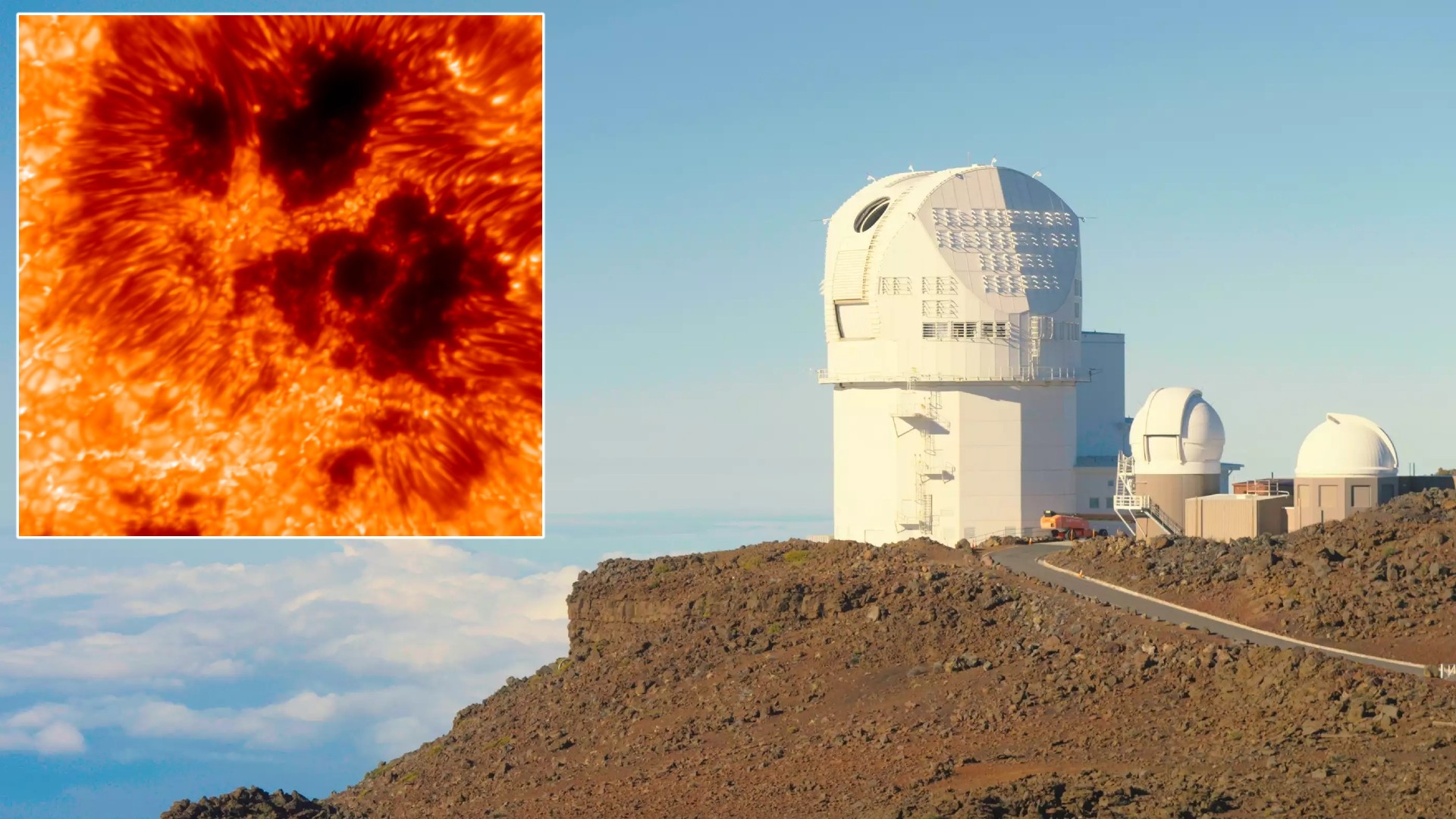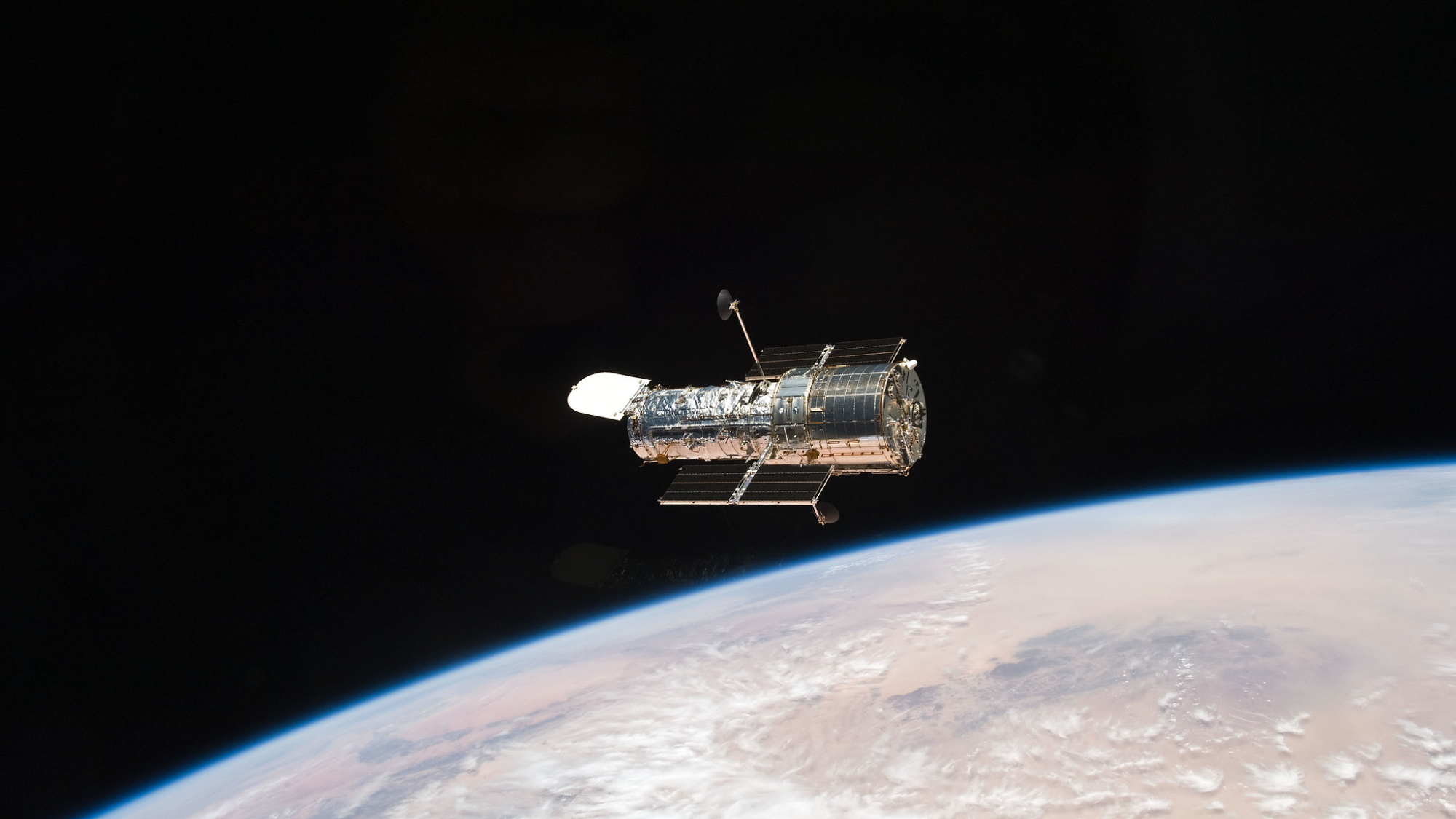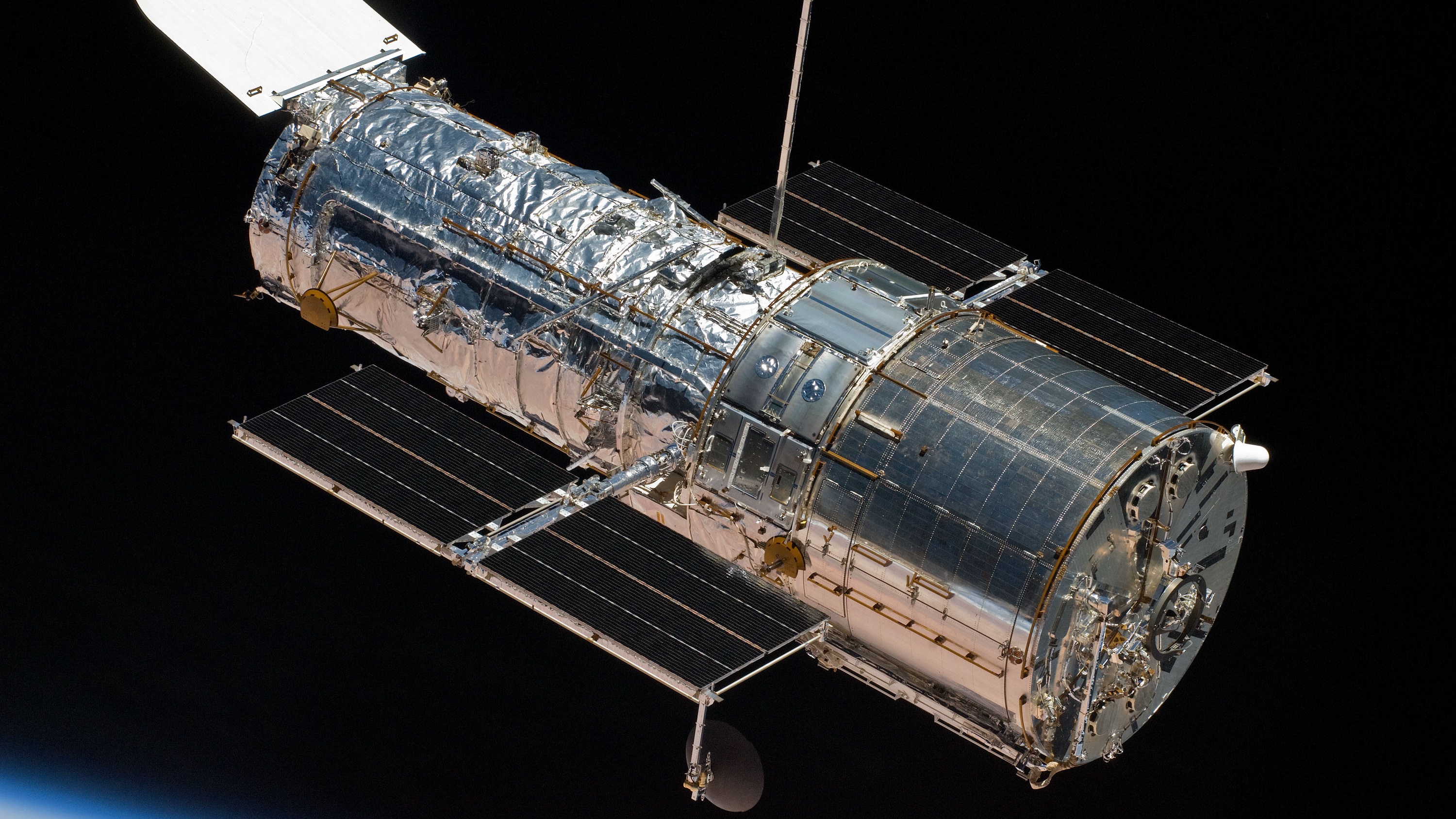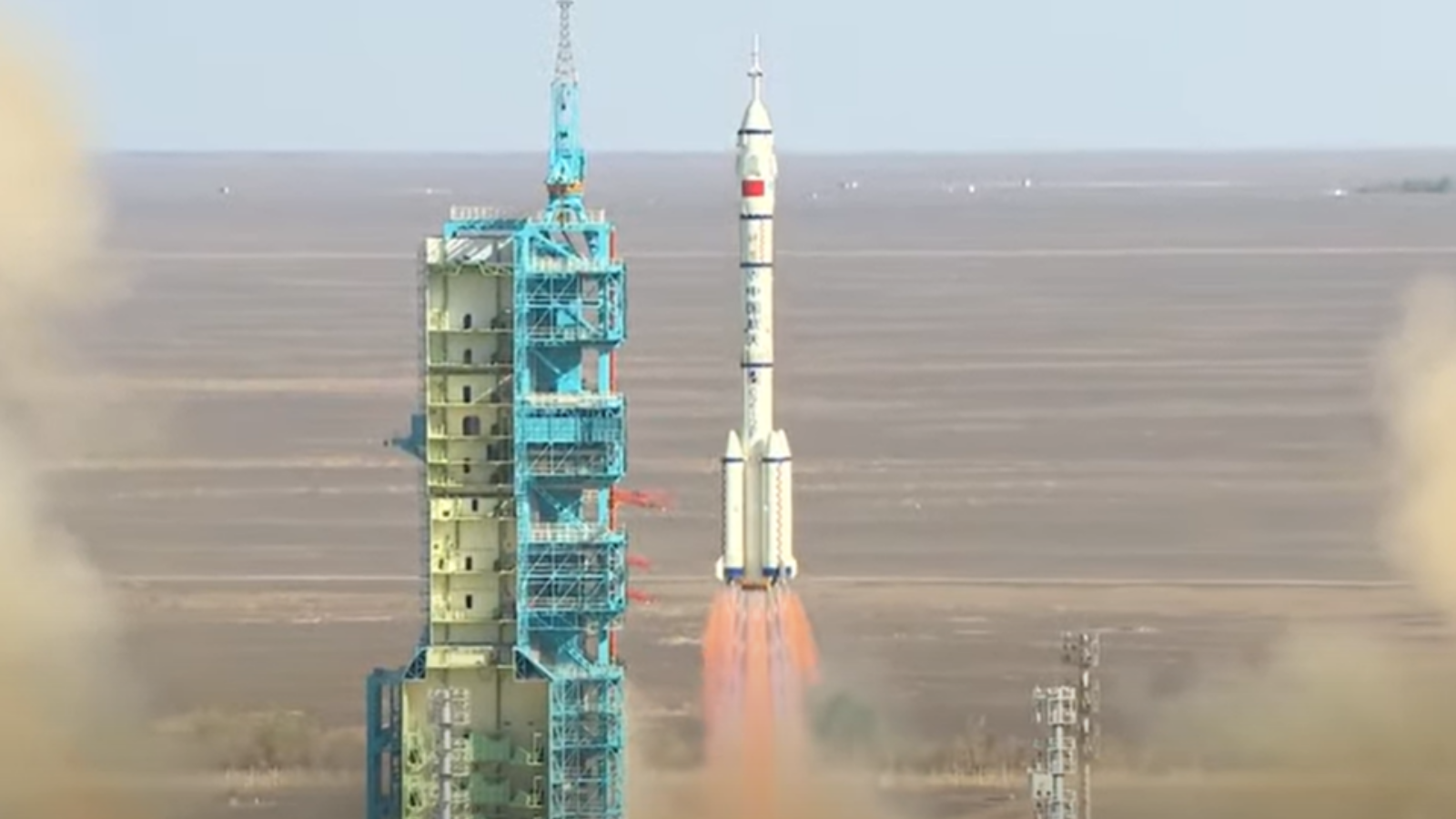Postage Stamps Feature First Torah in Space, Support Documentary
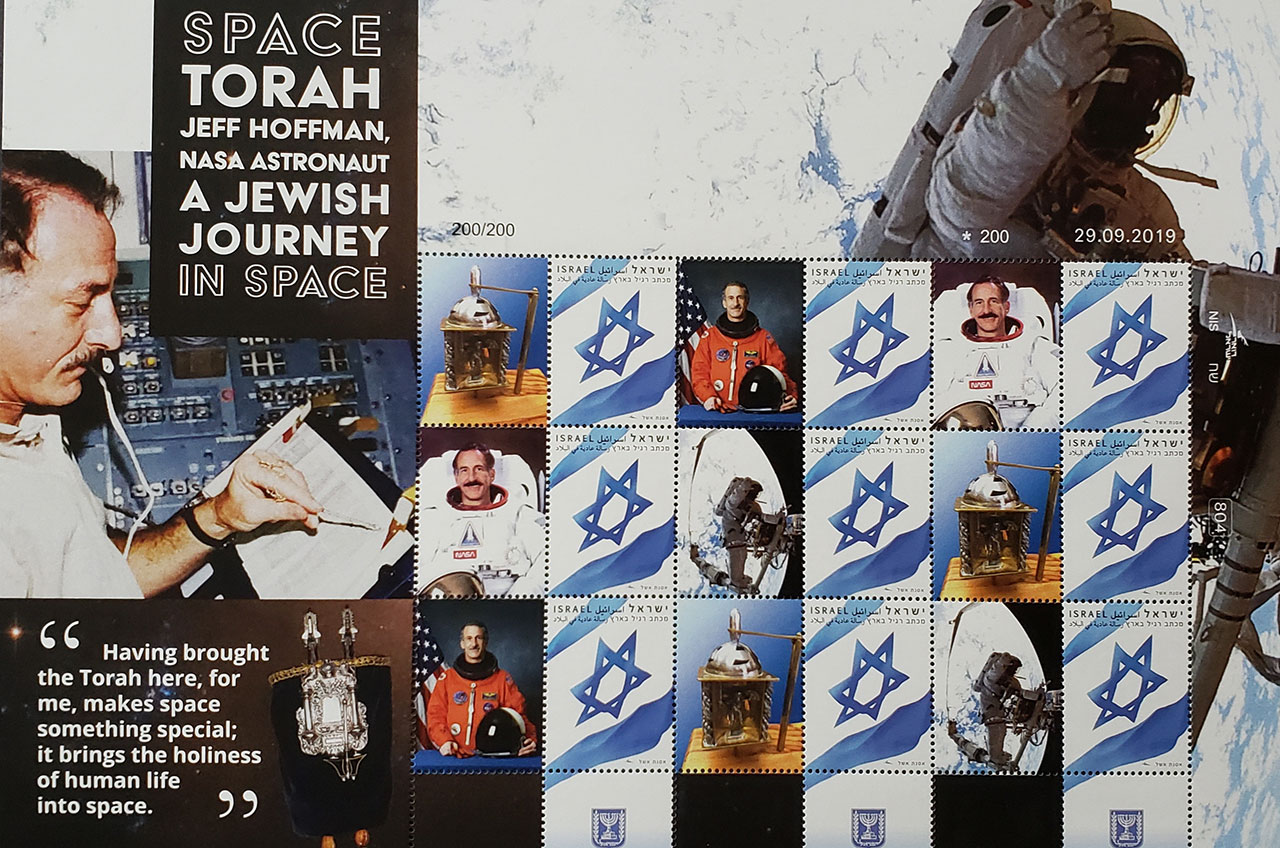
A new set of Israeli postage stamps celebrates both the first Torah to be flown in space and the astronaut who read from it more than 20 years ago. More than just commemoratives, the stamps support the completion of a documentary film that aims to share the story of the "Space Torah" with a wide audience for the first time.
Jeffrey Hoffman, who on his first spaceflight in 1985 became the first American Jewish man to enter Earth orbit, took the Torah with him on his fifth and last space shuttle mission in 1996. Both he and the holy scroll are depicted on the new stamp sheets, which are now available from the filmmakers behind the still-to-be-titled Space Torah documentary.
"It kind of blows me away, to be honest. I've never been on a stamp before," said Hoffman, who today is a professor in aeronautics and astronautics at the Massachusetts Institute of Technology (MIT) in Cambridge. "It's an honor and what can I say? To actually be on a stamp and I'm not even dead yet."
Related: Space Age Postage Stamps Through History (Photos)
Beyond the stamps, it is the work being done to share the Space Torah's story that has Hoffman impressed.
"Rachel [Raz, the executive producer] continually amazes me with her drive and her innovative ideas for how to make this happen," Hoffman told collectSPACE.com in an interview. "I didn't quite appreciate the significance of the stamps until she sent me a sheet of them."
Significance of the Space Torah
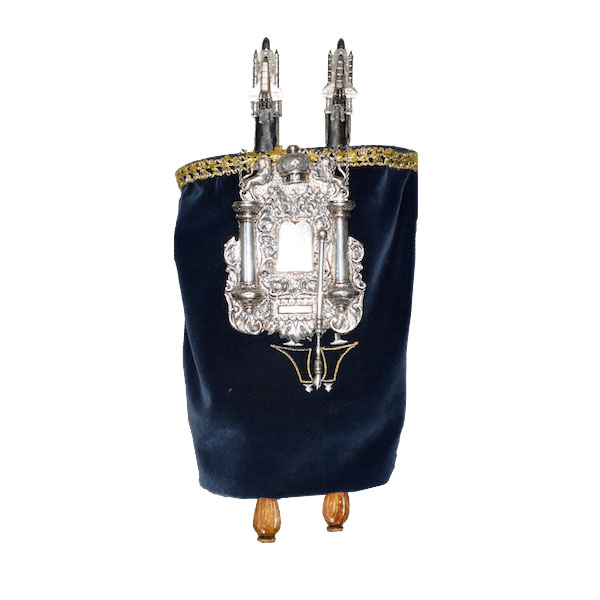
Raz did not set out to make a documentary when she heard about an astronaut coming to speak at her place of work a few years ago. By the time Hoffman had finished his presentation though, she knew that she needed to help get his story, and the story of the first Torah in space, to an audience larger than those who had gathered that day at Hebrew College in Newton Centre, Massachusetts.
Get the Space.com Newsletter
Breaking space news, the latest updates on rocket launches, skywatching events and more!
"By profession, I'm an educator. In the past 15 years, training teachers mostly," said Raz, who directs the Early Childhood Institute of the Shoolman School of Jewish Education at Hebrew College. "And I'm sitting there and the entire time I said to myself, 'How come I don't know about him?' If I don't know about him, because I know a lot about Jewish education and Jewish leaders, probably many other people don't know about him."
"Immediately, I was thinking how I can share this story with other educators and children all over the country, and also in Israel," Raz told collectSPACE.
Hoffman had flown symbols of his Jewish faith on each of his spaceflights. Some, like the dreidel that he flew on the first Hubble Space Telescope servicing mission in 1993, caught the attention of the press and public. Like the other items, including a menorah and mezuzah, he had not hid the flight of the Torah, but he did not fly it to gain publicity either.
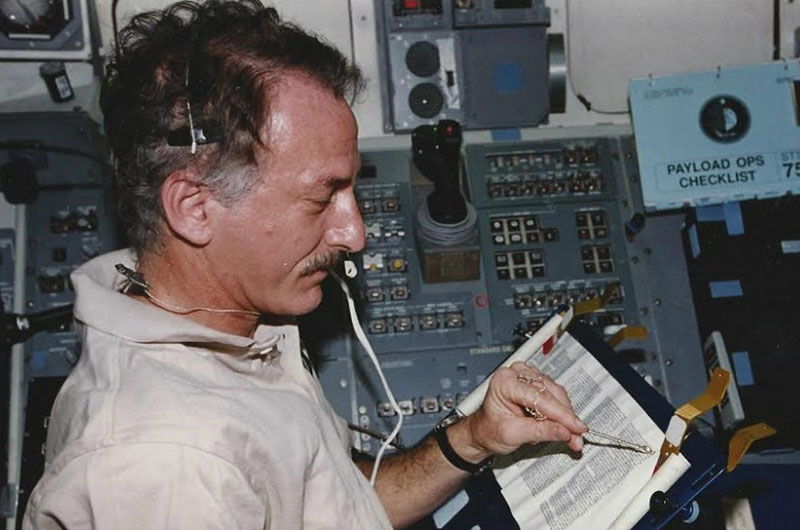
"It didn't become a big story when it flew because I didn't want to make a big deal out of it. It was something that I did privately for me and for our congregation," he said.
In fact, the original idea to fly the Torah came from his rabbi in Houston, who then sourced the smaller size scroll from another rabbi in New York.
"The one that was easiest to read is the one we chose. It was small enough that NASA said it was okay to take into space," said Hoffman.
On March 2, 1996, on a Shabbat evening midway through his STS-75 mission on space shuttle Columbia, Hoffman read Bereishit, the first Torah portion from Genesis. But it was not just his ability to read from the Torah that was important to him.
"He didn't want it to be a Torah for display, but a Torah that will still inspire in being used all the time," explained Raz.
"It's in the congregation in Houston and it's used regularly," added Hoffman. "A lot of the kids like to use it for their bar and bat mitzvahs."
The Space Torah Project
Moved by his presentation and surprised to learn that the footage of Hoffman reading from the Torah in space was not online or otherwise widely available, Raz approached Hoffman about making a documentary.
"He said that if it was done professionally, then yes. So I took his card and I went home and I did lots of homework of who knows anything about making a documentary film," Raz described. "I started asking and asking, then one person led me to another person to another, and I reached out to a production team."
To date, the Space Torah Project team has completed filming and has all of the material needed to assemble the film. Raz hopes to have the documentary ready in early 2020.
"The long term goal will be for this to be available online for everyone to use, at every synagogue, religious school, anyone can use it," said Raz.
First though, they need to raise $20,000 to finish production, hence the sale of the postage stamps.
The Israel Post produced 200 sheets of the Space Torah stamps, which feature photos of the Torah and Hoffman. Raz is offering the individually-numbered sheets at $100 each, or $360 if autographed by Hoffman, though the Space Torah Project website.
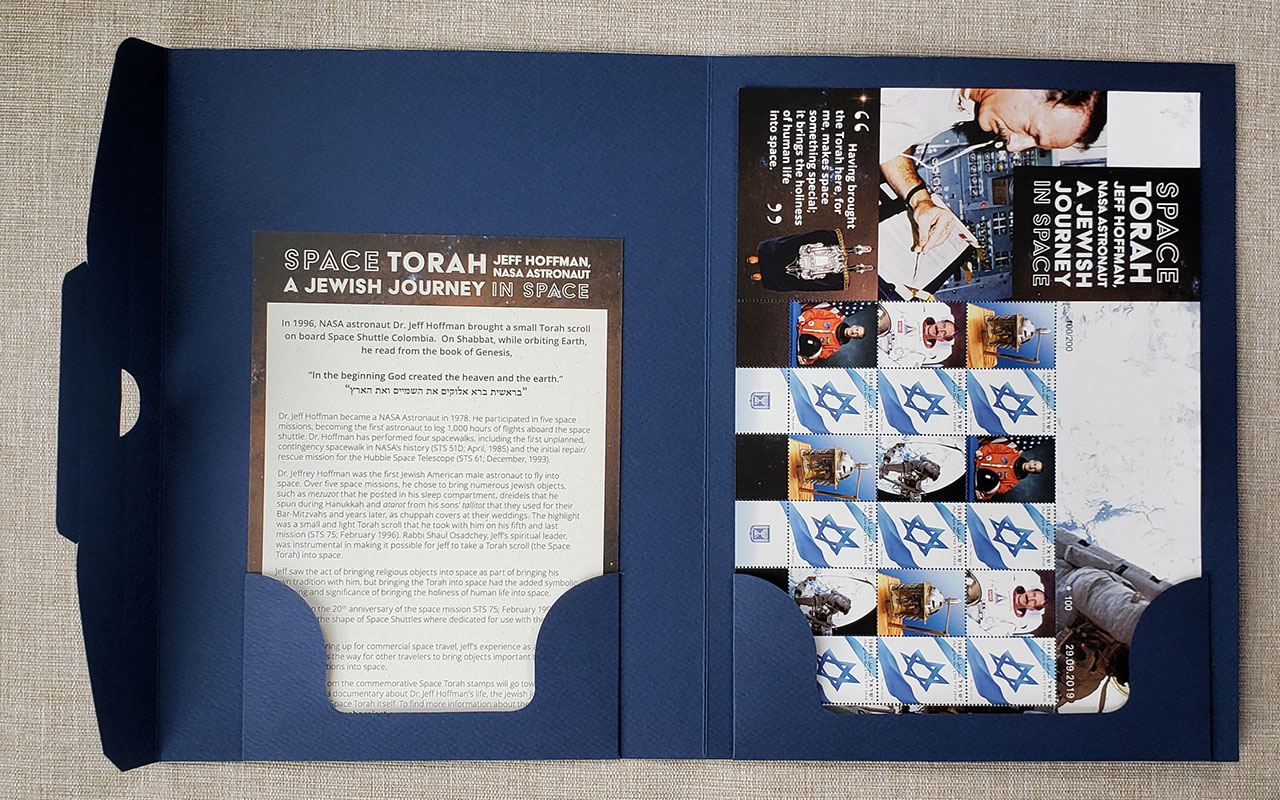
Like the stamps, Raz hopes the story of the Torah's spaceflight will be of interest to the Jewish community and to a larger audience.
"There is a universal message that [Hoffman] is sharing with his story, that all travelers take with them their traditions and their beliefs and their ideas," she said. "There is some specific things about the Jewish life, but there is also universal message I think."
"It's definitely oriented towards a Jewish audience who will appreciate the significance of a Torah in space," said Hoffman. "If it turns out to be of interest to other groups, so much the better."
- 'Jews in Space' Exhibit Traces Jewish Culture Across the Cosmos
- Columbia Shuttle Astronaut's Holocaust Tribute Honored in New Film
- World's First Private Moon Lander Will Carry Israeli Time Capsule
Follow collectSPACE.com on Facebook and on Twitter at @collectSPACE. Copyright 2019 collectSPACE.com. All rights reserved.
Join our Space Forums to keep talking space on the latest missions, night sky and more! And if you have a news tip, correction or comment, let us know at: community@space.com.

Robert Pearlman is a space historian, journalist and the founder and editor of collectSPACE.com, a daily news publication and community devoted to space history with a particular focus on how and where space exploration intersects with pop culture. Pearlman is also a contributing writer for Space.com and co-author of "Space Stations: The Art, Science, and Reality of Working in Space” published by Smithsonian Books in 2018.In 2009, he was inducted into the U.S. Space Camp Hall of Fame in Huntsville, Alabama. In 2021, he was honored by the American Astronautical Society with the Ordway Award for Sustained Excellence in Spaceflight History. In 2023, the National Space Club Florida Committee recognized Pearlman with the Kolcum News and Communications Award for excellence in telling the space story along the Space Coast and throughout the world.


